
The growing scandal involving horsemeat mislabeled as beef across Europe has renewed concerns about unhealthy eating and food inspections among local consumers. The scandal, which could naturally be reminiscent with the long-existing food safety problems in China, has struck a nerve with media and the Chinese public.
A Bloomberg editorial targeted the fever shown by China Central Television in reporting about this scandal to avoid talking about the latest domestic food safety issue in which fraudsters sold cheap duck meat as lamb to hotpot restaurants at much higher prices.
Similar voices can also be heard on Weibo. Some questioned why the broadcaster failed to expose more disgusting domestic problems, while others mockingly wondered whether the horsemeat scandal in Europe was really a big deal for Chinese people.
For Europe, this scandal has set alarm bells ringing across the region which was thought to have the strictest regulation system in the world. However, it doesn't mean the food there is risk-free.
In early 2011, thousands of tons of an animal feed additive were found to contain traces of cancer-linked dioxin in Germany.
With the coordination of the European food safety authorities, Germany soon shut 4,700 farms, and the British and Dutch governments investigated other products that might contain eggs from Germany.
Europe has been trying to ensure the transparency of food safety supervision and encourage public participation.
For China, this horsemeat scandal offers us a lesson as to how the country could overcome loopholes in its food supervision system. At least, Chinese parents would still likely buy imported milk powder from European countries.
The public's expectation toward food safety needs support from both the authorities and the media. The Chinese public knows the tough reality of the country's food safety problems. The more the media tries to escape from it, the larger the backlash will be.
We have witnessed reservations among some media outlets when it comes to reporting China's food scandals. We have also seen the growing number of netizens who speak openly and critically about the government's lack of prompt actions toward food safety problems. They are not only protecting their own interest, but also trying to rebuild their confidence in domestic food.


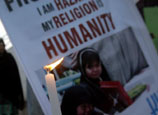


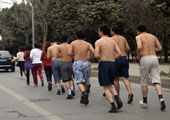

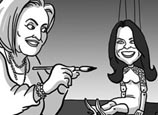
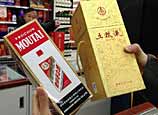
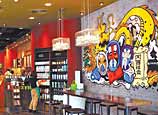






 At 75, he travelled in Europe; at 98, he got a master's degree; at 102, he published an autobiography.
At 75, he travelled in Europe; at 98, he got a master's degree; at 102, he published an autobiography.


![]()
